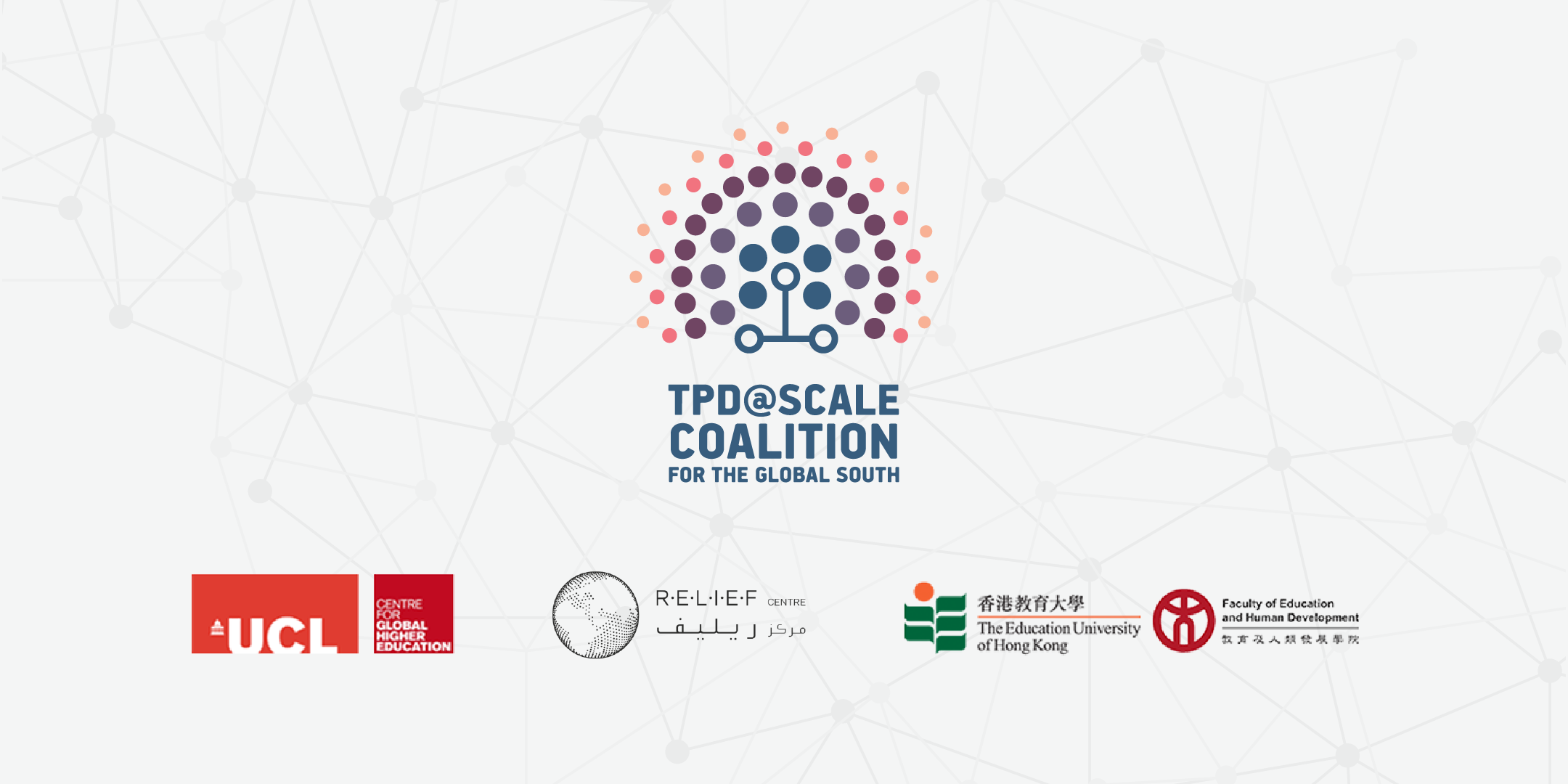The Coalition made a presentation at the University College London (UCL) Knowledge Lab last July 9, 2019. The symposium was attended by 20 participants from education researchers and practitioners all over the globe, with representation from countries such as Senegal and Bangladesh.
Professor Cher Ping Lim of Coalition member Education University of Hong Kong provided an overview of TPD@Scale and also presented preliminary findings from the landscape review and selected cases, highlighting several issues identified through the analysis: differentiation of learning, learner support, assessment, resourcing, inclusion, and cost-effectiveness. The key issue raised during the discussion of the landscape review and case studies was the idea of teachers’ input, agency, and their role as designers. The other issues raised include the need for more focus on displaced communities and population in conflict areas, as well as cross-country TPD@Scale programs.
Freda Wolfenden, Professor of Education and International Development, The Open University (OU), gave a presentation on personalized teacher professional learning through the use of tablets. The session drew insights from the OU’s programs, Teacher Education in Sub-Saharan Africa (TESSA), in Ghana and Nigeria, and Teacher Education through School-based Support in India (TESS-India), where teacher educators have been using tablets in school and college classrooms. “Through these programs, we are trying to affect sustainable system change by working with existing systems,” Prof. Wolfenden explained. Core materials were taken from different groups and were localized. In this new architecture for education, open educational resources (OERs) are used as tools for change, while MOOCs serve as new learning spaces to connect academic and school-based knowledge for learning. When reached for further comment, Prof. Wolfenden added that much of their work at the Open University, including TESS- India, is concerned with attending to the local such as individual professional learning needs whilst working at scale through using open strategies. “It was exciting to hear of other ways to resolve this in initiatives through the TPD@Scale Coalition, and I look forward to further dialogue,” she expressed.
Diana Laurillard, Professor of Learning with Digital Technologies, University College London Knowledge Lab, also talked about TPD@Scale as a ‘local inclusion’ model for education without infrastructure. The current cascade model for scaling goes from high level national professionals through many levels to many local teacher groups. The proposed alternative is the local inclusion model, which scales through massive open online courses (MOOCs) as professional communities of practice (COPs), linking to thousands of local learner groups. Prof. Laurillard goes on to illustrate the co-design process through their work in Lebanon, which has been experiencing mass displacement on an enormous scale. The co-design process involves site visits, co-design workshops, working with local video crews and a wide range of partners and stakeholders in teacher training in Lebanon. The presentation provided some snapshots of the MOOC on FutureLearn, where the course is also being done in Arabic. When reached for further comment, Prof. Laurillard explained that the TPD@Scale Coalition plays a very important role in research and development. “Teachers across the world are a vast and highly knowledgeable professional workforce, who every day work with and learn from their learners. Large-scale communications technologies can now enable us to learn from those teachers. The FutureLearn platform we use is running MOOCs as massive open online collaborations, where we and the participating teachers learn together how best to address the world’s greatest educational challenges.”
The full presentations can be viewed here:
- Live from the UCL Knowledge Lab – recording_1
- Live from the UCL Knowledge Lab – recording_2
- Presentation (PDF): Overview of TPD@Scale for the Global South by Cher Ping Lim
- Presentation (PDF): Philippines and Indonesia Country Case Studies by Cher Ping Lim
- Presentation (PDF): Personalised teacher professional learning: A holistic approach using tablets and OER by Freda Wolfenden
- Presentation (PDF): TPD@Scale: A ‘local inclusion’ model for education without infrastructure by Diana Laurillard and Eileen Kennedy
The Organizers:
About the Centre for Global Higher Education
The Centre for Global Higher Education (CGHE) is an international research centre focused on higher education and its future development. Our research aims to inform and improve higher education policy and practice.
About the RELIEF Centre
The RELIEF Centre is a centre for research and learning focused on inclusive growth and prosperity. It is about the prosperity of Lebanon in particular, but is also part of a larger agenda for developing sustainable ways to improve the quality of life of people throughout the world. The RELIEF Centre brings Lebanese and UK institutions and expertise together to address this challenge using cutting-edge research and innovation.
About the Faculty of Education and Human Development (FEHD)
The Faculty of Education and Human Development (FEHD) is one of the three faculties at The Education University of Hong Kong. FEHD is committed to the pursuit of excellence in teaching and research, and to making a real and positive difference in the communities it serves. Its contributions are guided by a dedication to enriching student learning, lives and career prospects, and to nurturing professionals and leaders who can contribute meaningfully in schools and other human service organisations in Hong Kong and beyond.

